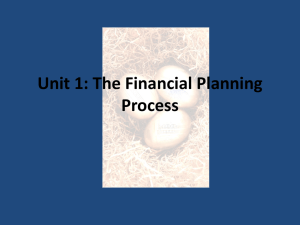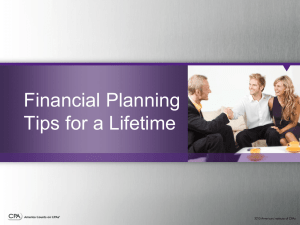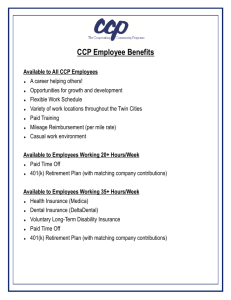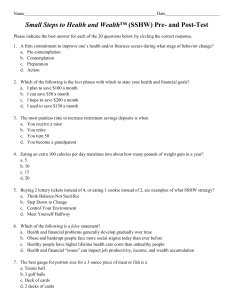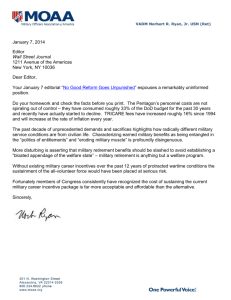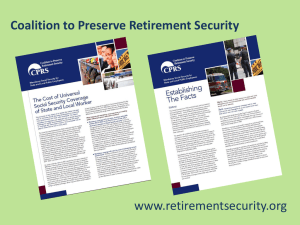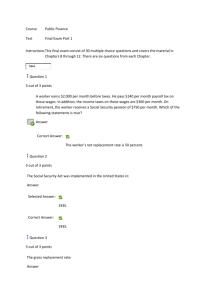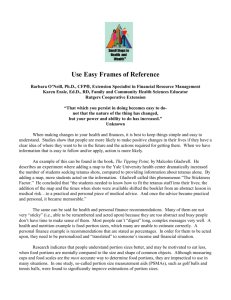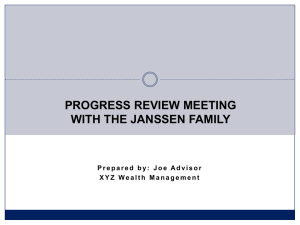THE COMPLETE 401(k) PICTURE
advertisement
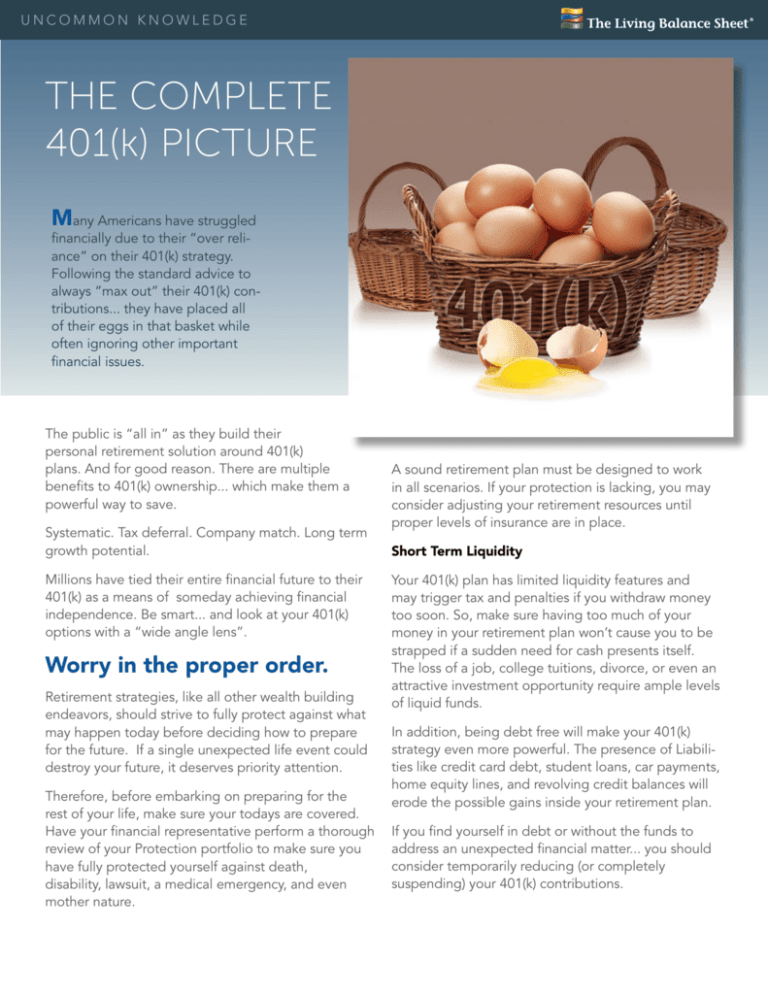
UNCOMMON KNOWLEDGE THE COMPLETE 401(k) PICTURE Many Americans have struggled financially due to their “over reliance” on their 401(k) strategy. Following the standard advice to always “max out” their 401(k) contributions... they have placed all of their eggs in that basket while often ignoring other important financial issues. The public is “all in” as they build their personal retirement solution around 401(k) plans. And for good reason. There are multiple benefits to 401(k) ownership... which make them a powerful way to save. Systematic. Tax deferral. Company match. Long term growth potential. Millions have tied their entire financial future to their 401(k) as a means of someday achieving financial independence. Be smart... and look at your 401(k) options with a “wide angle lens”. Worry in the proper order. Retirement strategies, like all other wealth building endeavors, should strive to fully protect against what may happen today before deciding how to prepare for the future. If a single unexpected life event could destroy your future, it deserves priority attention. Therefore, before embarking on preparing for the rest of your life, make sure your todays are covered. Have your financial representative perform a thorough review of your Protection portfolio to make sure you have fully protected yourself against death, disability, lawsuit, a medical emergency, and even mother nature. A sound retirement plan must be designed to work in all scenarios. If your protection is lacking, you may consider adjusting your retirement resources until proper levels of insurance are in place. Short Term Liquidity Your 401(k) plan has limited liquidity features and may trigger tax and penalties if you withdraw money too soon. So, make sure having too much of your money in your retirement plan won’t cause you to be strapped if a sudden need for cash presents itself. The loss of a job, college tuitions, divorce, or even an attractive investment opportunity require ample levels of liquid funds. In addition, being debt free will make your 401(k) strategy even more powerful. The presence of Liabilities like credit card debt, student loans, car payments, home equity lines, and revolving credit balances will erode the possible gains inside your retirement plan. If you find yourself in debt or without the funds to address an unexpected financial matter... you should consider temporarily reducing (or completely suspending) your 401(k) contributions. UNCOMMON KNOWLEDGE Tax Savings? Financial Balance is the key. Consumers have been told that, by contributing to their 401(k) plan, they will improve their cash flow! That by deferring taxes, they will have more money in their pocket now! Building a sound strategy for your retirement is important, and 401(k) plans are often an important element. This is simply not true... One’s current cash flow position is not improved by participating in a 401(k) plan and, may actually limit their liquidity. The “tax savings” that is often mentioned is located on that person’s balance sheet... and is not available to spend or invest outside the plan. Balance Sheet Impact As your money inside your 401(k) grows, the deferred tax on that money also grows. It is a financial shadow that can’t be out run. It really boils down to a timing issue. Pay tax now... or pay that tax (plus interest) in the future. And, unlike a stock or real estate you may own personally, the future tax will be at whatever the ordinary income tax rates are at that time (not capital gains). People receive regular statements from their employer indicating their current 401(k) balance. Remember, those statements rarely depict the embedded tax trapped inside their plan. Being properly protected, having sufficient liquid funds, living without debt, and having other forms of wealth (personal investments) in addition to your 401(k) itself provides a more balanced approach. Financial balance is the key. Rather than a one dimensional approach, see how your 401(k) plan fits into your entire financial picture. Improving your financial balance may allow you to be better protected, build more wealth for the future... and better distribute that wealth to yourself during retirement. “Maxing Out” Might be Right for Masses From the time you became eligible to participate in a 401(k) plan it was probably drilled into your head that you should “max it out.” What that means is that, regardless of your overall financial status, you should contribute to the maximum amount allowable. While good advice for the masses, it may not be the best advice for you. Let your financial representative help you build a 401(k) strategy that contains the proper level of financial balance. It’s your life... after all. When looking at your finances today or forecasting how much money you might have for retirement someday, it is important to look at how much you will get to keep “after taxes”. The Living Balance Sheet® and The Living Balance Sheet® logo are registered service marks of The Guardian Life Insuance Company of America (Guardian), New York, NY. The graphics and text used herein are the exclusive property of Guardian and protected under U.S. and International copyright laws. © Copyright 2005-2012, The Guardian Life Insurance Company of America. Guardian, its subsidiaries, agents or employees do not give tax or legal advice. You should consult your tax or legal advisor regarding your individual situation. GEAR 2012-5244

